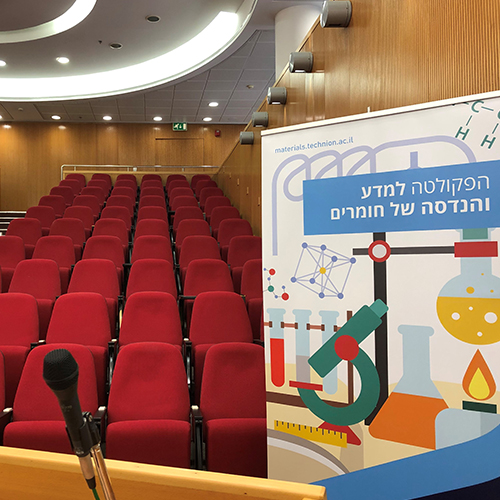
Mr. Xinjie Luo - M.Sc. Candidate
27/10/2024
ZOOM
14:30 - Jerusalem time / 19:30 - Beijing time
Traditional lithium-ion batteries use liquid electrolytes based on carbonate solvents, known for their high ionic conductivity but also associated with safety risks like flammability and leakage. To address these issues, research into solid-state lithium-ion batteries provides safer alternatives by eliminating the hazards related to liquid electrolytes. Ionogels, solid-state electrolytes formed by solid matrices and ionic liquids, present a promising solution due to their nonflammability, desirable electrochemical properties, and broad processing compatibility. However, they often suffer from low lithium transference numbers, limiting their lithium-ion conductivity. This study explores a novel ionogel electrolyte based on liquid-phase-exfoliated talc nanosheets and an imidazolium ionic liquid. As a solid matrix, the exfoliated talc nanosheets provide a large surface area, which enhances interactions with the ionic liquid, creating high-modulus ionogels. Moreover, they promote the dissociation of lithium salts in the ionic liquid and the lithium transference number of the ionogel electrolytes, leading to a high lithium-ion conductivity of 0.9 mS cm–1. These ionogel electrolytes enable the fabrication of LiFePO4/Li batteries with favorable rate capability and excellent cycling stability, thus offering a promising and safer alternative for next-generation solid-state lithium-ion batteries.


